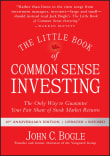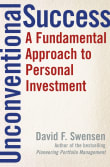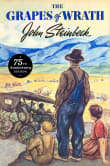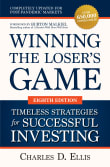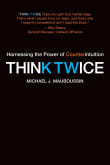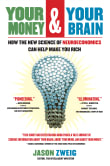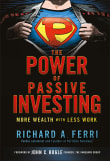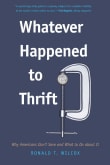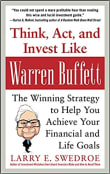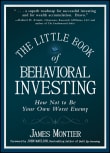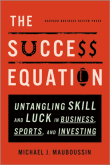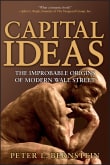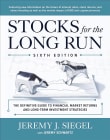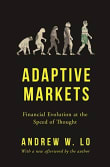Winning the Loser's Game

Book description
The definitive guide to long-term investing success-fully updated to address the realities of today's markets
Technology, information overload, and increasing market dominance by expert investors and computers make it harder than ever to produce investing results that overcome operating costs and fees. Winning the Loser's Game reveals everything you need…
Why read it?
5 authors picked Winning the Loser's Game as one of their favorite books. Why do they recommend it?

I had the pleasure of interviewing Charley for our book.
He’s a great storyteller. He was probably the first practitioner to advocate for passive index investing. He’s a tennis enthusiast, and his book was inspired by a book he read aimed at amateur tennis players. Ellis learned that to win at tennis, the best strategy is to simply try to not lose, and to not try to act like professional players.
He realized that the same strategy worked for investors as well. That means that investors shouldn’t try to beat the market.
From Stephen's list on developing your investment philosophy.

The biggest fear in retirement is not death, divorce, or being lonely. The biggest fear is running out of money.
Winning the Loser's Game is a classic investment book. Instead of convincing you that you can "beat the market" or time the market, the biggest lesson in this book is that low-cost, passive (i.e., indexing) is the way to win the loser's game.
Too many retirees make the mistake of quitting their job but then turn managing their portfolios into their new full-time gig. It's a sure way to lose money and to lose your mind! If you think you…
From Robert's list on retirement to help you create more meaning.

This is one of the first books I read after becoming a wealth manager, and it had a huge influence on how I view the investment world.
The title refers to the difference between amateur tennis – a loser’s game – where the winner is the player who makes the least mistakes and professional tennis – a winner’s game – where the winner is the player who makes the best shots.
Ellis argues that most investors are like amateur tennis players, playing a loser’s game where winning means limiting mistakes. Thus, for most investors, the best strategy is to avoid…
From John's list on novices to learn about investing.

This book is a classic. It starts with the observation that only a handful of tennis players in the world have the talent and expertise to play to win. For everyone else, tennis is a loser’s game – they simply don’t have the talent to play an attacking game. Instead, they must avoid losing. The same applies to investing. Only a few truly gifted and experienced investors can play to win at investing – picking stocks, timing the market, etc. Everyone else, including the majority of advisors, fund managers, and stockbrokers should be defensive – they should invest to avoid…
From Mark's list on for first-time investors in the stock market.

This classic, now in its eighth edition, delivers a needed antidote to the broker- and media-promulgated delusion of easy and obvious paths to index-beating results. Ellis emphasizes less sexy methods that genuinely enhance performance. They include focusing on long-term wealth-building, holding down costs, and paying attention to tax consequences. He supports it all with up-to-date research findings.
From Martin's list on investing from a money manager.
Want books like Winning the Loser's Game?
Our community of 12,000+ authors has personally recommended 100 books like Winning the Loser's Game.

